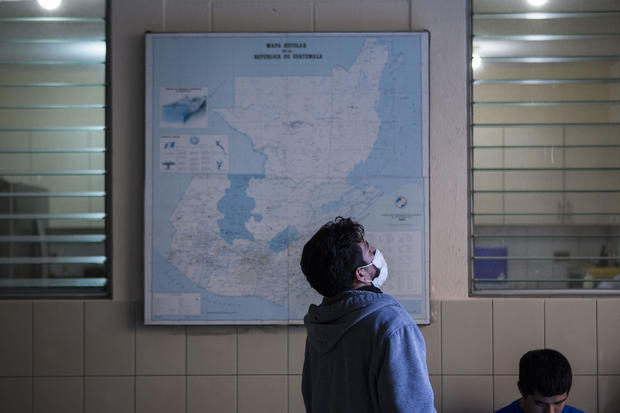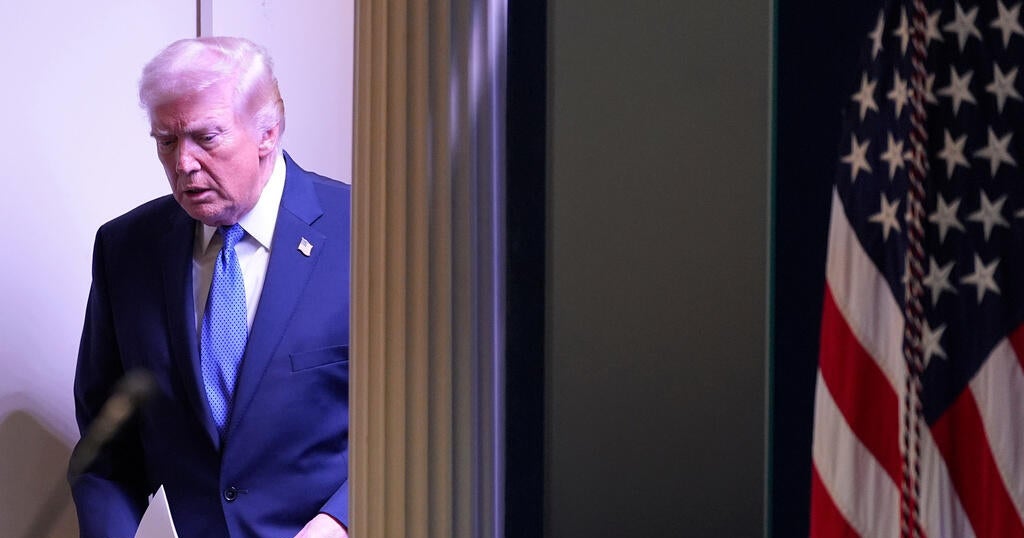U.S. says it's ready to send Mexican migrants to Guatemala, where few seek asylum
Washington — Despite objections from the Mexican government, the Trump administration has announced it's preparing to expand a controversial agreement with Guatemala to send Mexican asylum-seekers to the Central American nation, where few follow through on seeking protection.
In late November, the U.S. and Guatemala started to implement one of three asylum accords the Trump administration brokered with countries in Central America's Northern Triangle, comprised of Guatemala, Honduras and El Salvador. Once rerouted by the U.S. to Guatemala, which has seen hundreds of thousands of its citizens trek north in the past two years, asylum-seekers are given the option to request protection there or seek help from a non-governmental group to return to their native countries.
Out of 85 asylum-seekers sent to Guatemala by the U.S., only six migrants have requested protection through the Central American country's fledgling asylum system and five of them have since abandoned their claim, the Guatemalan government's migration institute said Tuesday. The rest have opted to return to their home countries.
The figures appear to bolster the argument by opponents of the agreement that it is not designed to offer asylum-seekers protection closer to their home countries, but rather aimed at deterring migrants by sending them to a third country with a virtually non-existent asylum system and scarce economic opportunities. Guatemala received only 262 asylum requests in 2018.
"The fact that so few people have actually applied for asylum just further confirms that this is in theory an asylum-sharing agreement, but probably in reality, more so just a system to keep asylum-seekers from entering the U.S.," Sarah Pierce, a policy analyst at the Migration Policy Institute, told CBS News.
For years, Guatemala has been plagued by political instability, crime and widespread poverty. According to figures by the World Bank, nearly 50% of people in Guatemala are poor. The country also has a homicide rate that is five times that of the U.S. and higher than that of Mexico.
Reports on Monday by BuzzFeed News and Reuters that U.S. officials were ready to implement plans to subject asylum-seekers from Mexico to the U.S.-Guatemala agreement fueled even more criticism from advocates. They said the move would further undermine the administration's assertions that its asylum agreements are designed to offer migrants protection "closer to home," since Mexican asylum-seekers, unlike those from Honduras and El Salvador, do not travel through Guatemalan territory to reach America's southern border.
The Department of Homeland Security, which has argued that its agreements with countries in Central America will ensure that nations in the region "share the distribution" of asylum cases, confirmed the move on Monday. "Certain Mexicans seeking humanitarian protections in the United States may now be eligible to be transferred to Guatemala and given the opportunity to seek protection there, under the terms of the Guatemala Asylum Cooperative Agreement," a spokesperson said.
A spokesperson for the Guatemalan government's migration institute, however, said the agreement still only applied to Central Americans, specifically people from Honduras and El Salvador. Washington and Guatemala City have been discussing the "possibility" of sending Mexican asylum-seekers to Guatemala, but those plans have not been finalized, the spokesperson told CBS News earlier Monday.
In a statement, the Mexican government — which is not a party in the U.S.-Guatemala accord — voiced its opposition to the Trump administration's plans of sending Mexican migrants to Guatemala.
Brokered after the U.S.-Guatemala accord was signed in July 2019, the asylum agreements with El Salvador and Honduras have not yet been implemented. In a "60 Minutes" report that aired last month, Salvadoran President Nayib Bukele said his country does not currently have "asylum capacities" to accept asylum-seekers sent by the U.S.





